Jun 3, 2025 11:25 AM
In Memoriam: Al Foster, 1943–2025
Al Foster, a drummer regarded for his fluency across the bebop, post-bop and funk/fusion lineages of jazz, died May 28…
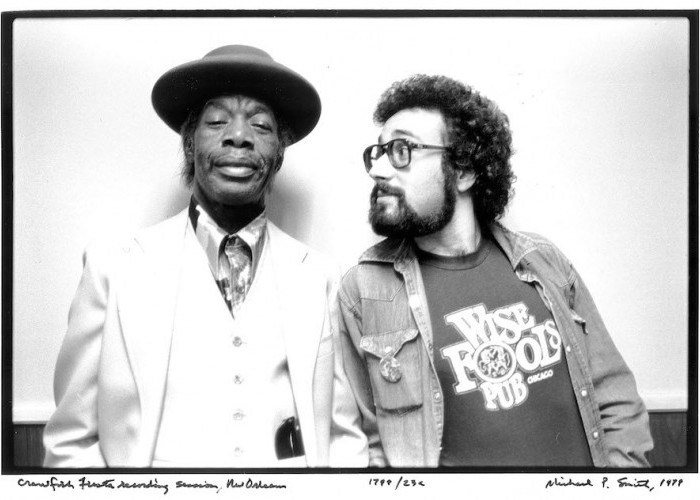
Professor Longhair, left, with Alligator Records founder Bruce Iglauer in 1978.
(Photo: Michael Smith)Farsighted and unsentimental, Bruce Iglauer has spent five decades elevating Chicago-based Alligator Records above other blues labels through his vigorous devotion to Chicago blues and his sharp appreciation for other styles like Delta blues and jump blues. On the occasion of Alligator’s 50th anniversary, DownBeat asked Iglauer and members of his musical family, along with blues historian-producer Dick Shurman and a few other blues insiders, to sort through the catalog’s 350-plus releases and list their favorites. A merger of exhilaration and integrity sustains the blues heard on the recordings they selected.
“I love being around when the creative bursts happen,” says Iglauer, the producer of many of these albums. “When artists are so excited and they get in the studio and you just can’t hold them back. Those are moments you really live for in this business.”
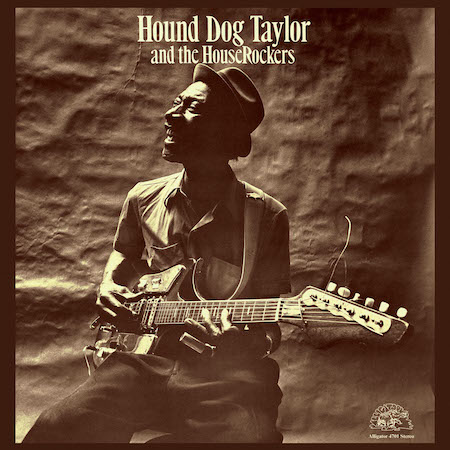
HOUND DOG TAYLOR & THE HOUSEROCKERS
Hound Dog & The HouseRockers (1971)
“This was Alligator’s first release, by the band that inspired the birth of the label and our slogan, ‘Genuine Houserockin’ Music.’ It’s raw, rollicking blues straight from Chicago’s South Side, played on two overdriven cheap guitars and a drum set, with Hound Dog’s slide careening up and down his guitar neck while he sings at the top of his register. The energy is overwhelming. If this glorious racket doesn’t make you smile, you’re probably dead.” —Iglauer
“This album was very much in the spirit of Delmark and other smallish independent labels, which were primarily labors of love and a desire to document worthwhile, meaningful music and gain proper recognition for its creators. ... Bruce certainly captured the live, in-your-face sound he was chasing.” —Shurman
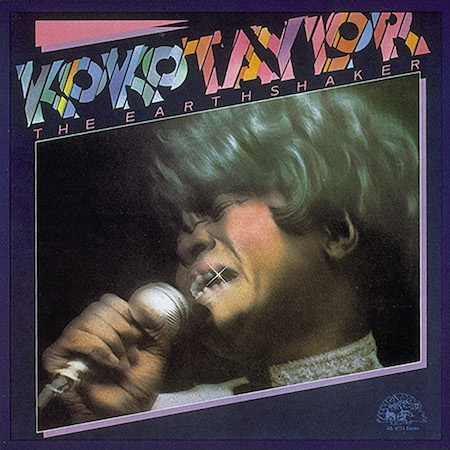
KOKO TAYLOR
The Earthshaker (1978)
“Koko’s second Alligator record was the one where she truly blossomed as the ‘Queen of the Blues.’ It contains many of the songs that became her most requested: her women’s blues anthem ‘I’m A Woman’ and her joyful version of ‘Let The Good Times Roll’ and a funky take on her Chess Records classic ‘Wang Dang Doodle.’ It’s got an all-star band, including Pinetop Perkins on piano.” —Iglauer
“Here was someone who took raw energy and electricity and spoke, graciously yet powerfully, for the women. Koko’s prodigious talent took possession of all manner of material, even stuff written or performed by men, and proceeded to make it her own.” —Fiona Boyes, singer/guitarist
BUDDY GUY
Stone Crazy! (1981)
“This explosive release was recorded in a studio in France on Halloween in 1979. In many ways it’s a live album, performed as if the musicians were joyously playing in front of an audience. Buddy plays and sings like a man possessed. The band is top-notch and follows Buddy’s pyrotechnics with heroic prowess.” —Tinsley Ellis, singer/guitarist
“This is by far my favorite Buddy Guy album and era. Buddy is completely unhinged on this album and performs with exhausting energy and fervor. This is a staple for any guitar player wanting to learn how to do it dirty!” —Selwyn Birchwood, singer/guitarist
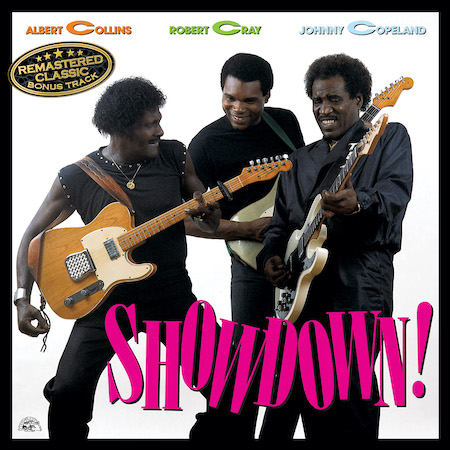
ALBERT COLLINS/JOHNNY COPELAND/ROBERT CRAY
Showdown! (1985)
“This was the album that brought Albert Collins into the studio with his long-time close friends Johnny Copeland and young star-to-be Robert Cray. It was a record that almost made itself because of the chemistry between them and the love those guys had for each other. The whole record, produced by Dick Shurman and I, was cut in three-and-a-half fun-filled days with no rehearsals. It became Alligator’s best seller ever, and a classic of modern blues. —Iglauer
“This is my all-time favorite Alligator album! I grew up with it, memorized every note, went to school on it. My dad was in his prime. He and Albert were always trying to outdo each other. And Robert had really hit his stride. I still play it all the time. Every blues fan has to own it.” —Shemekia Copeland, singer
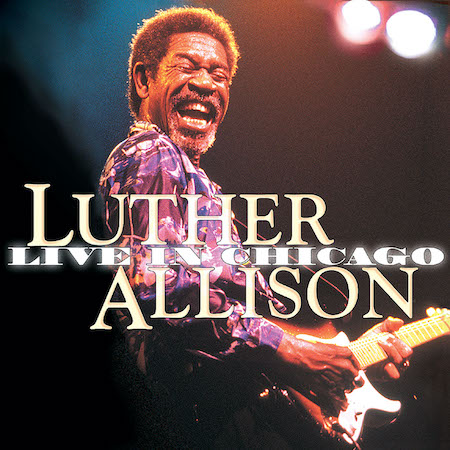
LUTHER ALLISON
Live In Chicago (1999)
“Luther had it all: aggressive, super confident guitar attack, a huge musical vocabulary, a raw voice inspired as much by Memphis soul as by Chicago blues and an unbelievable amount of energy that he was able to communicate on recordings. In cooperation with Ruf Records, who released Luther’s albums in Europe, we assembled some of his most exciting live performances into this two-disc set.” —Iglauer
SELWYN BIRCHWOOD
Pick Your Poison (2017)
“Selwyn’s proven himself to be a major league bluesman over the course of his three Alligator albums and hundreds of live shows. Pick Your Poison is 100% Selwyn — fresh, original songs, sang with plenty of soul, played with chops, fire and passion. —Iglauer
LONNIE BROOKS
Bayou Lightning (1979)
“Lonnie and band followed arguably the strongest contribution to the Alligator anthology Living Chicago Blues with an album offering and amplifying the same strengths: powerhouse vocals, a personal and forceful guitar attack and a potent blend of swampy Louisiana vibes with the hard blues and soul of Chicago. Lonnie was a clever songwriter, too.” —Shurman
GATEMOUTH BROWN
Pressure Cooker (1986)
“This is a record [cut in France in the mid-1970s with prominent jazz sidemen] that I feel does what recording is supposed to do: simply capture a snapshot of an artist’s sonic picture without the bells and whistles. Genuine, authentic music from a master musician!” —Birchwood
MICHAEL BURKS
Iron Man (2008)
“Michael Burks was a monster guitar player with gorgeous fat tone and soaring licks, and he sang in a warm voice reminiscent of Albert King’s, with lyrics about love and loss but also about small time Southern life. He was about to burst into the top level of blues artists when he died at too young an age, just 54, in 2012.” —Iglauer
TORONZO CANNON
The Chicago Way (2016)
“Toronzo was always a hot guitarist and strong singer, but I signed him because his songwriting talent had just exploded. He’s writing about serious topics, like life in the ghetto in ‘The Pain Around Me.’” —Iglauer
ALBERT COLLINS
Cold Snap (1986)
“The ‘Master of the Telecaster’ is a crucial figure in Alligator’s story. He was the first artist to come to the label with a worldwide reputation among blues fans. My co-producer Dick Shurman and I helped him find his comfortable, conversational singing voice. He was always an amazing guitar player with a sound like no other, with his strange minor-key tuning, his intensely physical playing and his signature reverb-drenched ‘cool sound.’ This album filled his lifelong dream of recording with master organist Jimmy McGriff. —Iglauer
SHEMEKIA COPELAND
Turn The Heat Up (1998)
“This amazing debut by the woman who has become the female blues artist of her generation was cut when Shemekia was only 18, but her emotional maturity was that of an adult who had walked through fire and come out the other side. She would tell you that she is a more subtle and nuanced singer now and that’s true, but this is filled with her youthful energy, her immensely soulful voice, and the excitement of cutting her first album.” —Iglauer
JAMES COTTON
High Compression (1984)
“Gutbucket Chicago blues led by one of the architects. One of his great records, with Magic Slim, Pinetop Perkins and many more. I loved this man and had the honor of being his last booking agent.” —Jack Randall, The Kurland Agency
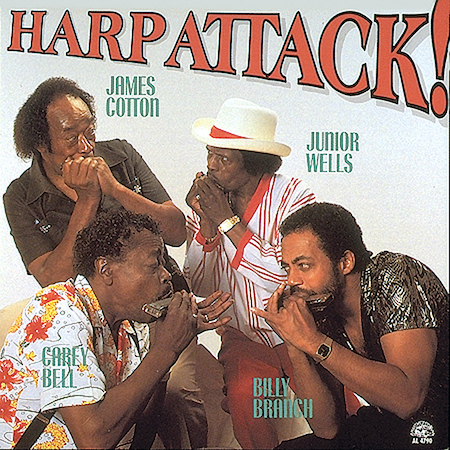
JAMES COTTON/JUNIOR WELLS/CAREY BELL/BILLY BRANCH
Harp Attack! (1990)
“The summit meeting of Chicago’s four best blues harmonica players, close friends who loved each other and also loved to ‘cut heads’ (try to outplay each other). We created different combinations of players on different tracks, with the harps sometimes soloing, sometimes playing together like a horn section, sometimes trading licks or fours, always challenging each other.” —Iglauer
BUDDY GUY & JUNIOR WELLS
Alone & Acoustic (1991)
“When you strip back all the fixings, you get the rare bird that is Buddy and Junior in musical flight. Every nuance is revealed in this recording and nothing is there to get in the way. Two untouchable blues masters. —Cathy Lemons, singer (The Lucky Losers)
MICHAEL HILL’S BLUES MOB
Bloodlines (1994)
“Michael brought the plight of Black Americans into a modern context. His lyrics spoke to me as a young Black man in Chicago, and Michael’s from New York City so I know his words also spoke to other Black men around the nation. It let listeners of every race know what con- ditions and inequities were at the time.” —Cannon
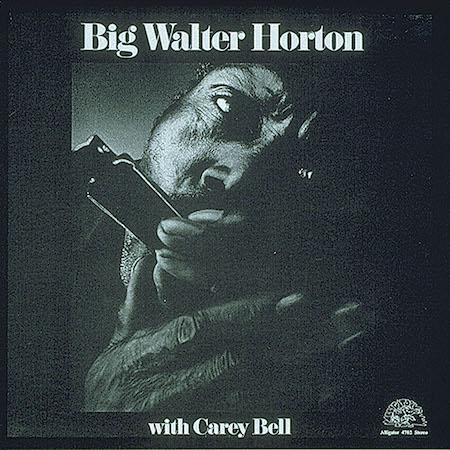
BIG WALTER HORTON
Big Walter Horton With Cary Bell (1972)
“This album put harp giant Big Walter together with another harp luminary, Carey Bell, and with guitar great Eddie Taylor. How can you go wrong?” —Rick Estrin, singer/harmonica player (Rick Estrin & the Nightcats)
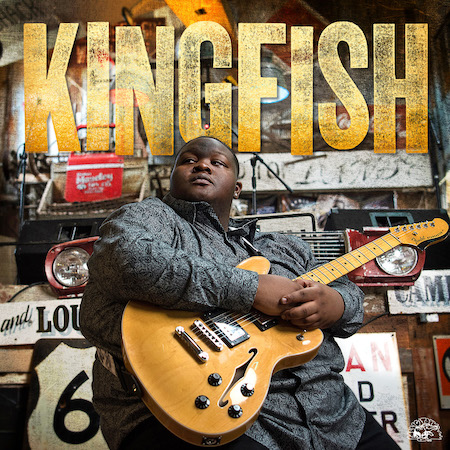
CHRISTONE “KINGFISH” INGRAM
Kingfish (2019)
“This was Christone’s sensational debut, cut when he was 18 (he’s now 22), and it was a crucial announcement of a major new talent. Alligator is committed to bringing forward the great blues artists of the next 50 years and in Selwyn and Christone, we have two of them.” —Iglauer
PROFESSOR LONGHAIR Crawfish Fiesta (1980)
“The idiosyncratic pianist who gave the world an inimitable vocal style and trademark rhumba boogie piano groove saw a revival in the 1970s. Bruce Iglauer and engineer Freddie Breitberg went to New Orleans in 1979, and with much local help, especially from Fess disciple Dr. John, gave him the most sympathetic showcase yet for his many quirky charms and staples.” —Shurman
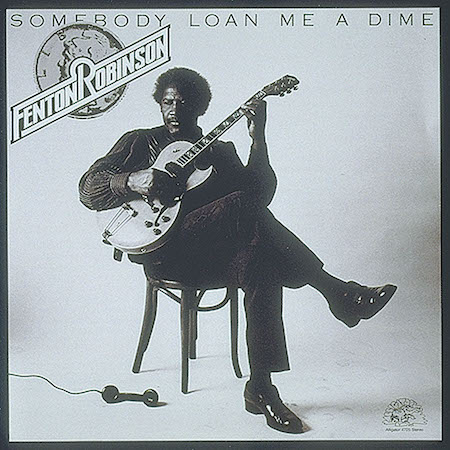
FENTON ROBINSON
Somebody Loan Me A Dime (1974)
“Showcasing his falsetto-tinged voice and harmonically sophisticated guitar, Fenton was more for careful listening than dynamic entertainment. The first of his three Alligator albums has become definitive, with strong updates of the title tune and the Alligator classic ‘You Don’t Know What Love Is’ among the many highlights.” —Shurman
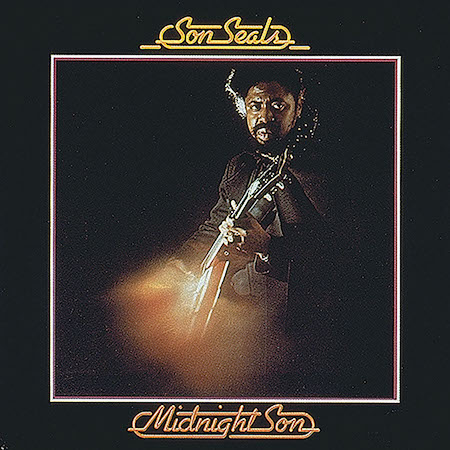
SON SEALS
Midnight Son (1976)
“Son Seals was a completely unknown artist when we signed him in 1973. Over the following years, he became recognized as a blues giant of his generation, singing wrenching, intense songs and attacking his guitar so hard it sounded like he’d ripped the neck off. This was his second album and the announcement of a major artist coming into his musical maturity. For this one, he wanted to expand his band with a horn section, and he wrote a slew of new songs. Son was an artist very close to my heart.” —Iglauer
KATIE WEBSTER
The Swamp Boogie Queen (1988)
“A triple threat, Katie was an accomplished piano player and a fine singer and songwriter. Believe me, she could do a moving ballad and then do gospel then do something gritty like ‘No Bread, No Meat.’ She was just crazy talented!” —Curtis Salgado, singer/harmonica player
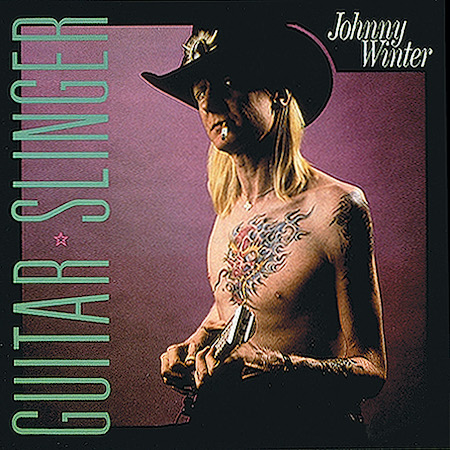
JOHNNY WINTER
Guitar Slinger (1984)
“In early 1984, Johnny came to Chicago and, joined by Albert Collins’ top-notch rhythm section, Ken Saydak’s keyboards and the tenor sax and arranging contributions of Gene Barge, he cut what remains one of the most bulldozing hard blues releases in the Alligator catalog. His supercharged version of Lonnie Brooks’ ‘Don’t Take Advantage’ [has] an octane matched on slide outings like ‘It’s My Life, Baby.’” —Shurman
Special thanks to Phil Berkowitz, John Hahn, Michael Hill, Matthew Stubbs, Ally Venable and Kelly Zirbes. DB
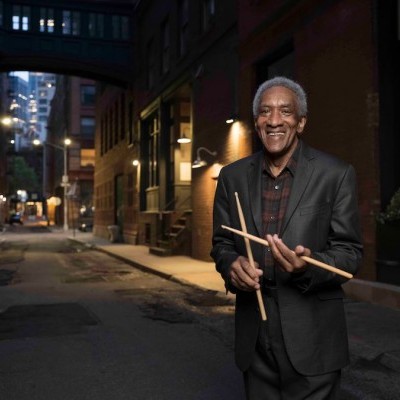
Foster was truly a drummer to the stars, including Miles Davis, Sonny Rollins and Joe Henderson.
Jun 3, 2025 11:25 AM
Al Foster, a drummer regarded for his fluency across the bebop, post-bop and funk/fusion lineages of jazz, died May 28…
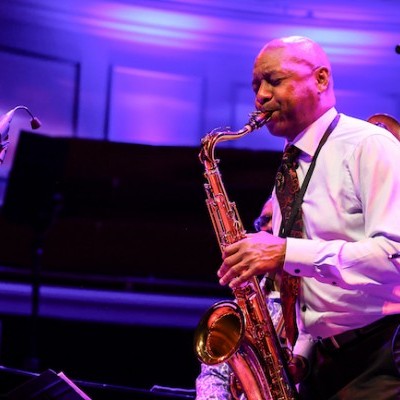
“Branford’s playing has steadily improved,” says younger brother Wynton Marsalis. “He’s just gotten more and more serious.”
May 20, 2025 11:58 AM
Branford Marsalis was on the road again. Coffee cup in hand, the saxophonist — sporting a gray hoodie and a look of…

“What did I want more of when I was this age?” Sasha Berliner asks when she’s in her teaching mode.
May 13, 2025 12:39 PM
Part of the jazz vibraphone conversation since her late teens, Sasha Berliner has long come across as a fully formed…

Roscoe Mitchell will receive a Lifetime Achievement award at this year’s Vision Festival.
May 27, 2025 6:21 PM
Arts for Art has announced the full lineup for the 2025 Vision Festival, which will run June 2–7 at Roulette…

Benny Benack III and his quartet took the Midwest Jazz Collective’s route for a test run this spring.
Jun 3, 2025 10:31 AM
The time and labor required to tour is, for many musicians, daunting at best and prohibitive at worst. It’s hardly…